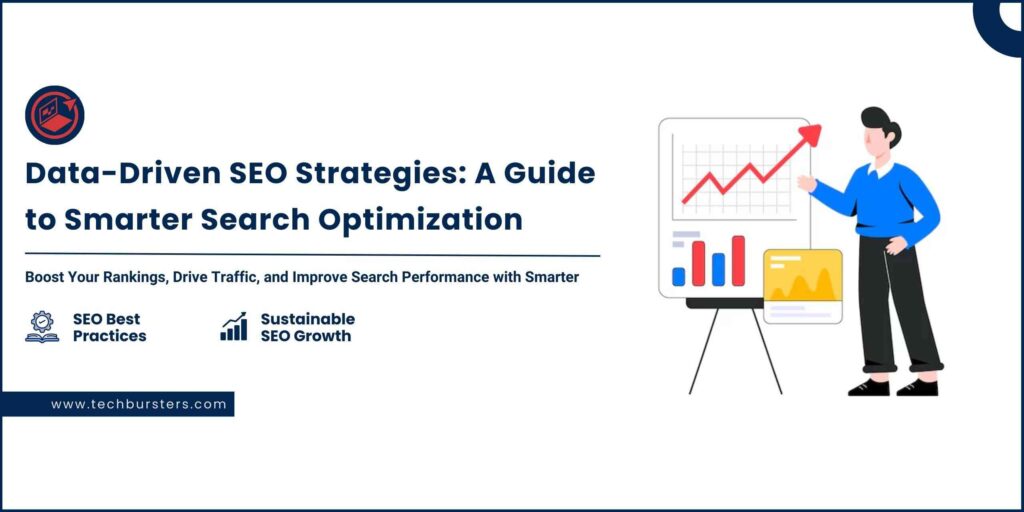
How Data Shapes Modern SEO?
Over the past decade, search engine optimization has undergone a profound transformation. Intuition and generic recommendations have given way to highly targeted strategies driven by measurable results. An SEO agency, such as Denver SEO Company, leveraging data, utilizes real-time analytics, allowing organizations to make smarter, data-powered decisions that are responsive to search engine algorithms and aligned with evolving user intent.
This shift to data-driven SEO brings significant advantages. When marketers examine patterns in click-through rates, bounce rates, and user pathways, they can identify what truly engages audiences. By rooting strategies in robust measurement, digital teams are better positioned to outpace competitors, adapt quickly to algorithm shifts, and boost long-term organic growth. According to Search Engine Journal, campaigns anchored in analytics outperform those not by a broad margin. Data-driven approaches are now fundamental for businesses intent on securing top search positions.
Core Metrics Every SEO Should Track
Knowing which metrics matter—and consistently monitoring them—forms the backbone of any effective SEO strategy. The key performance indicators (KPIs) guiding modern search optimization include organic traffic, keyword rankings, click-through rates, backlink profiles, domain authority, and user engagement metrics like average time on page. Tracking these metrics provides a clear window into what’s working and where to adjust.
Organic traffic volume reveals how many users arrive at the site via search, while keyword tracking uncovers which search terms drive results. Analyze click-through rates from search results to see if your meta titles and descriptions entice users. Whether you’re a large brand or a niche business, monitoring your backlink profile and domain authority guides off-page strategy. Finally, user engagement statistics—like bounce rate and session duration—uncover opportunities to enhance content and site experience, leading to more meaningful user interactions.
Techniques for Gathering Actionable Insights
Traditional data dashboards are only the starting point for effective analysis. Tech SEO Meets Chatbots when insights go beyond numbers—tools like heatmaps visually show how users interact with your pages, and A/B testing compares variations to see what resonates. Session recordings provide an unfiltered window into real visitor journeys, helping surface usability blockers or points of friction that analytics alone might miss.
Segmenting data by user type, device, and acquisition channel allows marketers to identify nuanced behaviors that standard reporting can overlook. For example, a spike in mobile bounce rates may indicate usability issues on smaller screens. Pro SEO teams frequently share case studies showing that these granular insights lead to specific, high-impact site optimizations.
Blending SEO Best Practices with Creative Thinking
Data lays the groundwork, but creativity delivers the experience users remember and share. While metrics indicate what topics or keyword themes to prioritize, compelling content and inventive solutions build genuine authority and user loyalty. For instance, offering unique takes on trending topics or producing interactive content engages visitors in ways that numbers alone can’t predict.
The most successful SEO campaigns blend the certainty of analytics with the ingenuity of human creativity. By iterating on messaging, calls to action, and multimedia content based on what the data reveals, marketers avoid tired strategies and humanize their sites in the eyes of both users and search engines.
Role of Content Quality in SEO Success
Search engines now prioritize helpful, people-first content over thin, keyword-stuffed pages. Aligning with Google’s helpful content guidelines is paramount. High-quality articles nail search intent, solve user pain points, and provide clear, comprehensive answers that foster trust and authority.
Recent industry research found that long-form, solution-focused content attracts more backlinks and organic visibility than pages focusing solely on keywords. Users—and therefore search engines—gravitate toward resources that address real-life questions and needs rather than simply echoing popular search terms. In short, premium content underpinned by user research is a core engine of sustainable SEO growth.
Staying Ahead of Algorithm Updates
Search engine algorithms evolve constantly, reshuffling rankings and recalibrating what “good” search intent looks like. To remain resilient, leading organizations regularly audit website health, refresh outdated pages, and continuously study algorithm updates as they occur. Tools like real-time rank trackers and automated health checks help teams spot and address issues before rankings are impacted. For a comprehensive approach to staying current, see Ahrefs on Google Algorithm Updates.
Agility and lifelong learning are essential traits. Teams that invest in ongoing training and cultivate a culture of experimentation often bounce back faster from changes—and sometimes even capitalize on shifts to leapfrog competitors. Secure your site with technical SEO hygiene while remaining flexible to pivot content and structural strategies when necessary.
Practical Tips for Sustainable SEO Growth
- Publish comprehensive, user-centric content on a consistent schedule. Prioritize helpfulness and depth.
- Perform regular site audits, addressing technical errors and optimizing load times for mobile and desktop.
- Build authentic backlinks from high-authority, niche-relevant domains using relationship-based outreach.
- Adopt emerging tools such as AI-driven analysis to uncover data patterns and automation opportunities. Forbes reports AI is accelerating insight discovery for teams worldwide.
- Continuously reassess and pivot keyword strategies based on the latest user data and competitive analysis. Test, adapt, and repeat.
Success in modern SEO requires consistency, curiosity, and a willingness to question assumptions as new data emerges. Those who stay proactive and rethink strategy in light of new trends are most likely to thrive amid ongoing change.
Looking Forward: The Future of Data-Driven SEO
The SEO landscape will grow more complex as search engines and users demand more personalized, relevant experiences. Data-driven SEO strategies provide the precision and agility needed to outpace the competition. By integrating reliable analytics, human creativity, and an adaptive mindset, digital marketers are equipped to meet today’s challenges and tomorrow’s opportunities in SEO.
